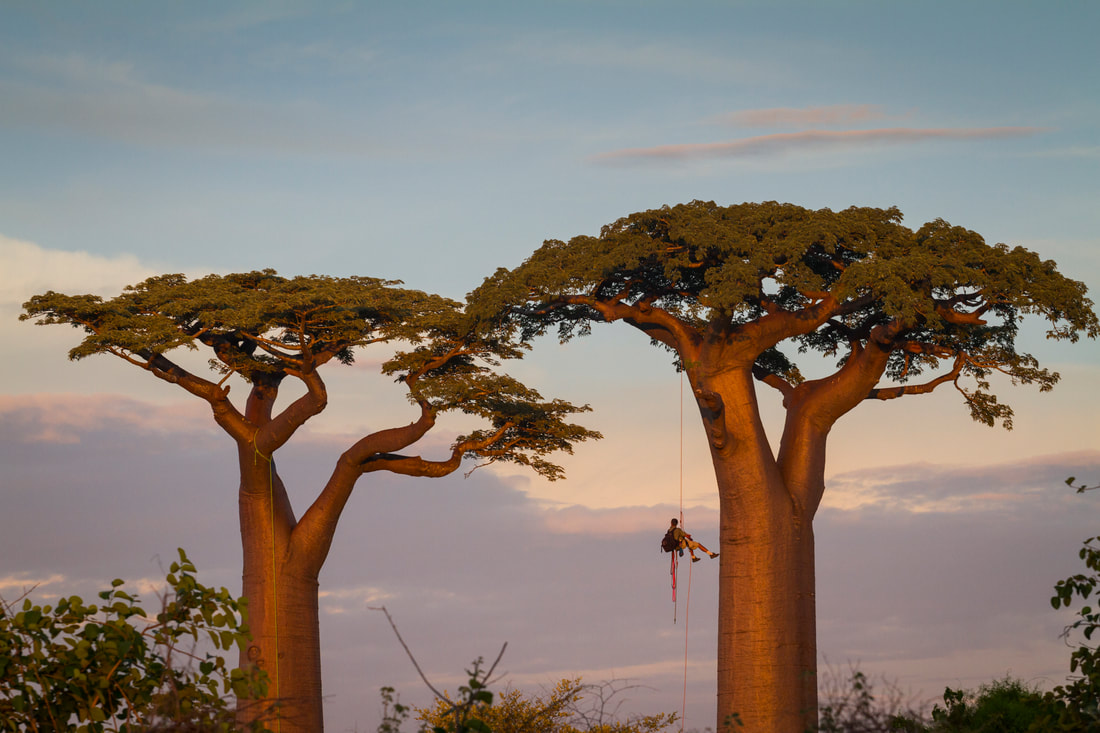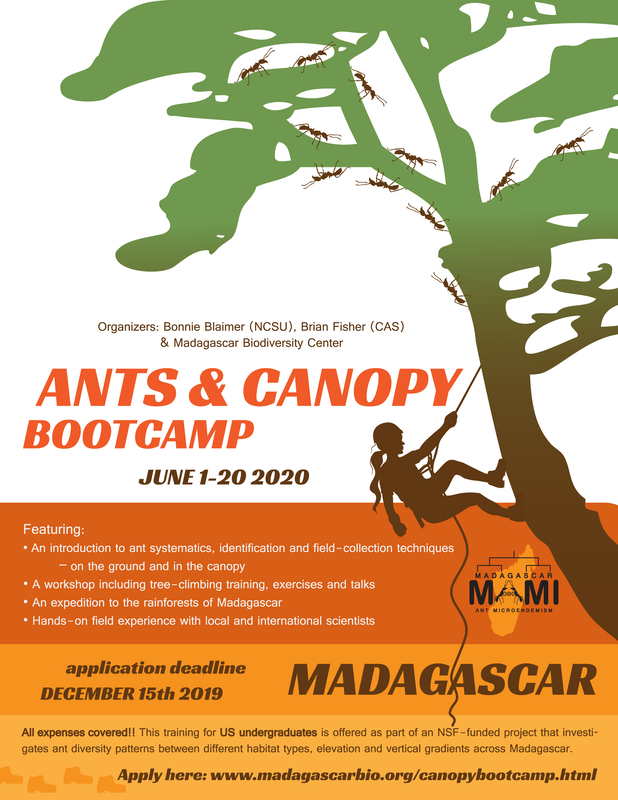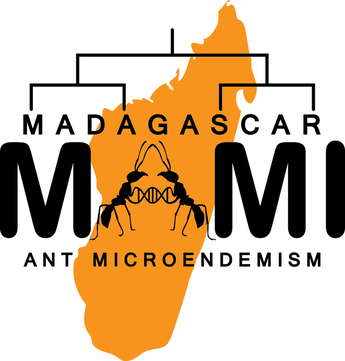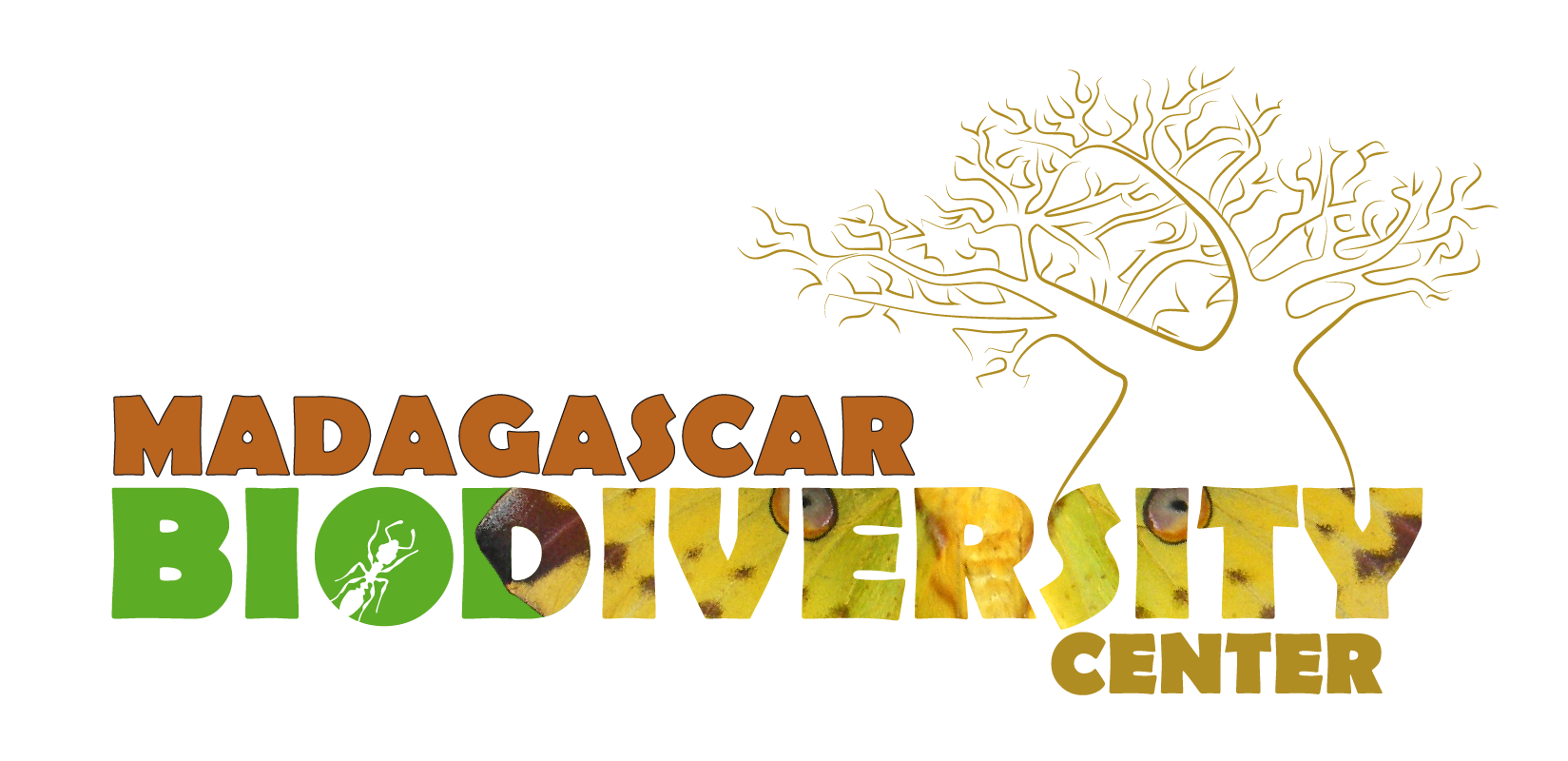|
Application deadline:
December 15, 2019 |
Image by Dave Katz
|
The Experience A unique field training program for undergraduates and recent graduates consisting of a three week-long workshop on ants, canopy ecology and tree climbing research techniques. The workshop will introduce students to systematics, identification and field-collecting techniques for ants, both in the canopy and on the ground. The students will receive training in rope-climbing and canopy access methods used for sampling of canopy ants and other insects. This first part of the program will also include talks and exercises emphasizing the biological diversity and evolution of ants and their roles in the ecosystem, especially in the rainforest canopy in Madagascar. This ant systematics and tree climbing workshop will take place at the Madagascar Biodiversity Center (MBC) in Antananarivo (https://www.madagascarbio.org/), where the participants will interact with Malagasy students and scientists working to build a more sustainable country. |
Poster by Michele Esposito
|
We will then embark on a field expedition to the rainforest in eastern Madagascar, where students will have the opportunity to obtain hands-on field experience and interact with a variety of local and international scientists. The expedition will take us to one of the largest protected areas of forest in the biologically rich eastern rainforest biome of Madagascar. Students will learn to how to employ standard sampling techniques for ants and other insects, and experience the adventure of climbing trees in the tropical rainforest to search for ants in the canopy. This is an immersive, unique opportunity to participate in a scientific expedition, allowing students to interact with a variety of scientific experts aside from the main instructors.
This training opportunity is part of a NSF-funded project, Madagascar Ant Microendemism (MAMI), that investigates ant diversity patterns between different habitat types, elevation and vertical gradients across Madagascar with genomic and collection-based methods. We will accept a total of four undergraduate students from the United States to participate in this one-of-a-kind opportunity to serve as ambassadors for our rainforest canopy and arthropod outreach program. The selected students will gain invaluable field and research experience, while focusing on the importance of the rainforest canopy as an understudied habitat. Students will also have the optional opportunity to extend their research experience in Madagascar and volunteer as an intern at the Madagascar Biodiversity Center from 3 weeks up to 6 months (read more here: http://www.madagascarbio.org/volunteer.html).
This training opportunity is part of a NSF-funded project, Madagascar Ant Microendemism (MAMI), that investigates ant diversity patterns between different habitat types, elevation and vertical gradients across Madagascar with genomic and collection-based methods. We will accept a total of four undergraduate students from the United States to participate in this one-of-a-kind opportunity to serve as ambassadors for our rainforest canopy and arthropod outreach program. The selected students will gain invaluable field and research experience, while focusing on the importance of the rainforest canopy as an understudied habitat. Students will also have the optional opportunity to extend their research experience in Madagascar and volunteer as an intern at the Madagascar Biodiversity Center from 3 weeks up to 6 months (read more here: http://www.madagascarbio.org/volunteer.html).
|
Organizing Team
The Ants & Canopy Bootcamp is presented by the Blaimer Lab at North Carolina State University and the Fisher Lab at California Academy of Sciences, in collaboration with the tree climbing experts and the Madagascar Biodiversity Center. Visit the respective lab websites to learn more about the research conducted by them! Blaimer lab Fisher lab Scientific instructors: Brian Fisher (CAS), Bonnie Blaimer (NCSU), Gabi Camacho (CAS/NCSU), Carol Loss (CAS); Local support: Madagascar Biodiversity Center and Malagasy Ant Team. |
Requirements
- Interested applicants must be enrolled in an US undergraduate degree (Entomology, Biology or related) at the time of application.
- Must be comfortable with heights and able to cope with basic and physically demanding field conditions, e.g., 6-8 hr hikes in difficult terrain, adverse weather, no internet/phone.
- Priority is given to applicants with demonstrated strong interest in pursuing research on ants.
Participants Costs
Transportation costs between the United States and Madagascar, lodging and meals are covered for participants for the duration of the workshop and the field expedition. Students will need to purchase their own health insurance, and cover medical expenses, as well as visa fees and other related expenses. Students who choose to intern at MBC will need to cover their own living expenses during that time period.
Transportation costs between the United States and Madagascar, lodging and meals are covered for participants for the duration of the workshop and the field expedition. Students will need to purchase their own health insurance, and cover medical expenses, as well as visa fees and other related expenses. Students who choose to intern at MBC will need to cover their own living expenses during that time period.
Application Guidelines
Interested applicants must complete the online form including: 1) a short statement of the candidate’s research interests and future plans; 2) a statement of the candidate’s reasons for wishing to participate in the workshop and the impact it will have in your current and future research; 3) name, institution and e-mail of person we could ask for a letter of reference.
Applicants will be notified of acceptance to the workshop in late January.
Interested applicants must complete the online form including: 1) a short statement of the candidate’s research interests and future plans; 2) a statement of the candidate’s reasons for wishing to participate in the workshop and the impact it will have in your current and future research; 3) name, institution and e-mail of person we could ask for a letter of reference.
Applicants will be notified of acceptance to the workshop in late January.



